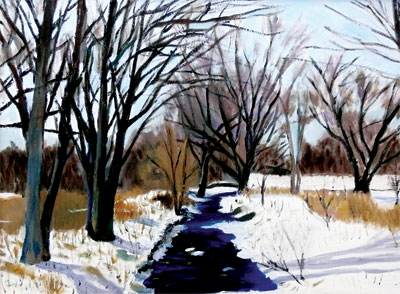All Nonfiction
- Bullying
- Books
- Academic
- Author Interviews
- Celebrity interviews
- College Articles
- College Essays
- Educator of the Year
- Heroes
- Interviews
- Memoir
- Personal Experience
- Sports
- Travel & Culture
All Opinions
- Bullying
- Current Events / Politics
- Discrimination
- Drugs / Alcohol / Smoking
- Entertainment / Celebrities
- Environment
- Love / Relationships
- Movies / Music / TV
- Pop Culture / Trends
- School / College
- Social Issues / Civics
- Spirituality / Religion
- Sports / Hobbies
All Hot Topics
- Bullying
- Community Service
- Environment
- Health
- Letters to the Editor
- Pride & Prejudice
- What Matters
- Back
Summer Guide
- Program Links
- Program Reviews
- Back
College Guide
- College Links
- College Reviews
- College Essays
- College Articles
- Back
Civil Rights: A Plea for Winter's End
I was born in winter so deep, with a whiteness so thick and suffocating that it strangled any breath of color. I was surrounded by a pale-faced doctor and a herd of white-uniformed nurses who delivered me in Maine, the second-whitest state in America. Even in such a white world, color clung to me somehow, forming a film over my eyes so that I could see the way the leaves flipped from silver to green when spring came.
By the fourth grade, I had learned that color was a bad thing, that being different was a bad thing. During recess, I ran, letting the brown dirt stain my feet and the yellow sun burn my skin, but the pale pig-tailed girls whispered during their double-dutch games that I was the weirdest girl they’d ever seen--a dressless, pinkless, sparkleless, jump-ropeless freak. Meanwhile, the boys unwillingly admitted that I was a good runner--for a girl.
Later, they told me there were things called races, as if it was a sort of competition to see who could win. They told me that no matter how fast I ran, I would always lose: my mother’s Asian, which makes me Asian, which makes me colored yellow, and colors are ugly, so I lose. Their words made my heart sink to my toes and my blood curdle, and nothing I could say could change their cruel thoughts. I felt wronged, so very, very wronged. Seen, but not truly seen. Heard, but never listened to. Seen and not heard: I became the ideal girl, forced into a cell of normalcy, utterly ignored no matter how hard I screamed for change.
Please, this imprisonment can no longer continue. I am not the only one.
Through my almond “Asian” eyes, which are still mocked for their purportedly limited vision, I have seen so much: I have seen people with beautiful skin--skin that looked like chocolate earth and lullabies--gawked at by others, even joked about to the point that they did it to themselves. I have seen people who committed no crime but to love another get humiliated for being gay. I have seen people who did nothing but acknowledge who they really were inside become circus animals in the eyes of their peers, who ogled them as if transgender meant being infected with some grotesque yet fascinating disease. But the judgers, mockers, and humiliators did not realize they were the ones plagued by sickness, and they did not realize that the virus devouring them was not color, love, or revelation, but ignorance.
We must end this now.
Schools, which are the so-called havens of enlightenment, are often rife with ignorance and hatred, which spreads like an unseen cancer among us, consuming us, blinding us. We must acknowledge the wars being fought by the students who only attempt to know themselves, love themselves, and free themselves from the suffocating labels forever strapped around their necks. We must challenge students to think, to speak, to make this invisible illness a visible one, for only then can it be vanquished.
Because I am a child still, and children always ask for things that can never be, I ask for this: I was born in a white, silent winter in which I am still shivering; please, when the time comes, do not let me die in one.

Similar Articles
JOIN THE DISCUSSION
This article has 0 comments.
